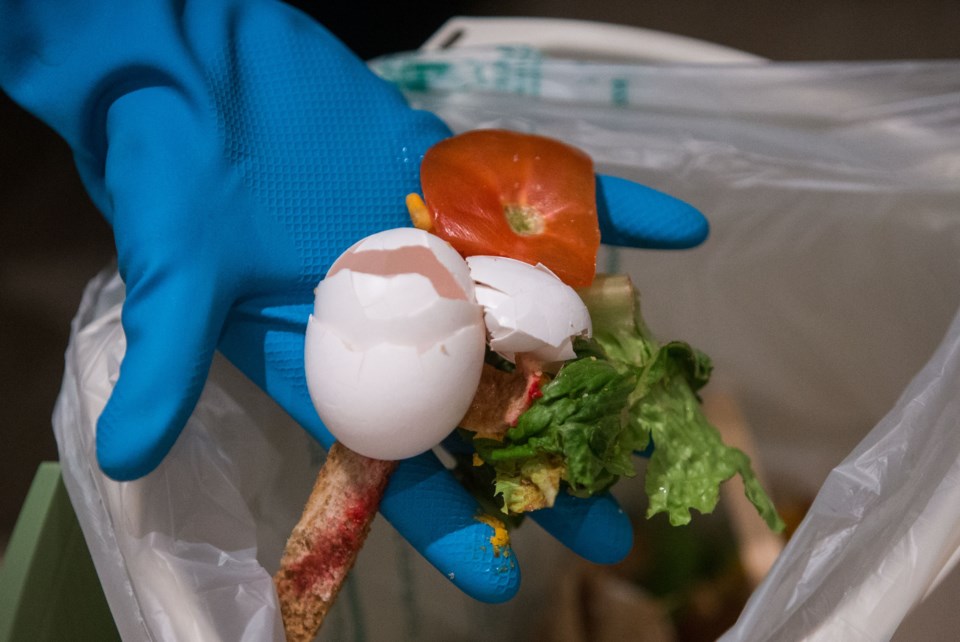Canadian cities should consider banning organic waste from landfills to reduce greenhouse gas emissions, suggests a recent report.
The Commission for Environmental Co-operation released a report earlier this month on the state of organic waste management in North America. The group is a tri-national organization formed out of the North American Free Trade Agreement to address environmental issues.
The report found that landfills in Canada, Mexico, and the U.S. added about 200 million tonnes of greenhouse gases to the atmosphere a year – equivalent to about 73 per cent of Alberta’s total emissions in 2015. Most of this was due to the roughly 190 million tonnes of organic waste landfilled each year.
North America could eliminate almost half of those emissions if it diverted all organic waste from landfill, the report found. In addition to bringing in pay-as-you-throw schemes, the report recommended that municipalities ban organic waste from landfills to encourage waste diversion.
Organics are relatively easy to recycle and, unlike plastics and metals, aren’t subject to shifts in global commodity prices, said Christina Seidel, executive director of the Recycling Council of Alberta.
“An organics ban in landfills is just common sense.”
Waste of a good resource
The study found that North Americans fared poorly when it came to organic waste diversion, averaging about 28 per cent. Canada was slightly better at about 32 per cent.Canada’s landfilled waste produces about 26 million tonnes of greenhouse gas emissions a year, the report found – equivalent to about 36 St. Alberts. Canada could shave about 3.4 million tonnes (five St. Alberts) off that if it got to 100 per cent organic waste diversion.
“Organics is the one area we have really sucked at” when it comes to diversion, Seidel said.
Organic waste produces the powerful greenhouse gas methane when put into landfill and also removes soil nutrients from circulation, Seidel said. Much of it is perfectly usable food that can, and should, be used to feed people or animals. You can even turn it into energy by throwing it in an anaerobic digester and burning the resulting methane.
North America could reap considerable economic opportunities if it made better use of its organic waste, the report found. The U.S. would have saved some $14 billion and created about 320,000 jobs in 2014 if it had used all of its organic waste to make products or energy instead of landfilling it.
The report highlights best practices from across Canada to keep more organic waste out of the landfill. Vancouver puts a 50 per cent surcharge on any waste loads that are more than 25 per cent food waste, for example, while many Nova Scotia communities require residents to use clear bags for organic waste, as that makes it easier to spot improperly sorted trash.
One of the report’s recommendations was to ban organic material from landfills. Nova Scotia and Prince Edward Island have had such a ban since 1998, and Vancouver got one in 2015.
Seidel said Alberta should consider a province-wide ban on organic waste to landfills. While local bans work, it’s easy to circumvent them by simply hauling trash to a different landfill.
Landfill bans haven’t come up for discussion yet at the Edmonton Metropolitan Region Waste Minimization Advisory Committee, said St. Albert waste diversion program supervisor Olivia Kwok. Some Edmonton region communities don’t even offer green-bin composting yet. While St. Albert could go it alone on a ban, it would likely be easier to do so as a region.
The report also called for more composting by the commercial, industrial and institutional sector. Calgary and San Francisco do so by requiring companies and institutions to have recycling and composting programs, Seidel notes.
The report recommends governments educate residents on proper waste sorting and help them hook up with products made from organic waste. Kwok said St. Albert greatly reduced the amount of contaminants showing up in its green bins last year through a comprehensive education campaign, and promotes composting through its twice-yearly compost giveaways.
The report can be found at www3.cec.org/fw/organic-waste-reports.




